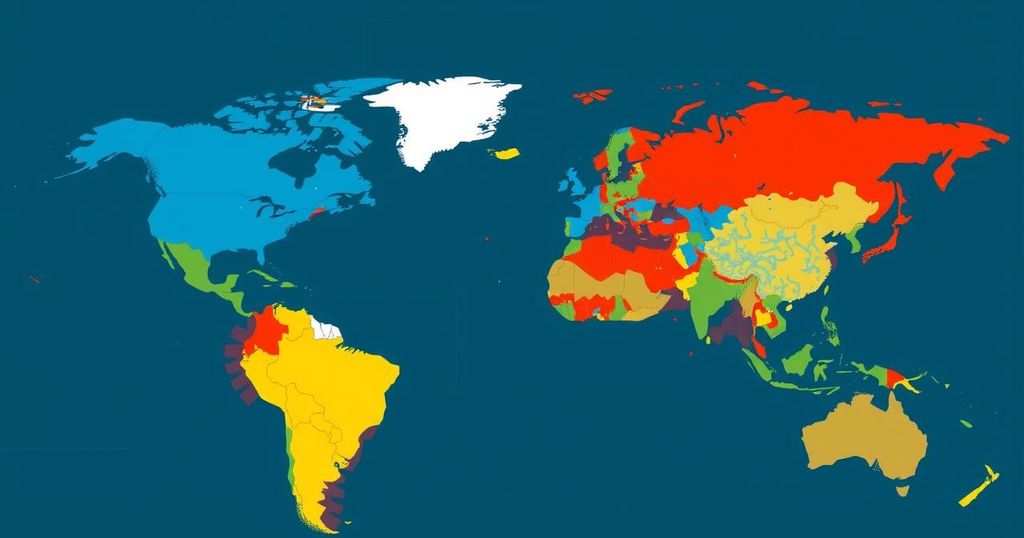COP29: Addressing Financial Commitments for Climate Action and Equity
COP29 in Baku will review financial commitments from developed nations to support developing countries in addressing climate change. Initially pledged $100 billion annually by 2020, funding has fallen short of goals amid rising global temperatures and increasing emissions. Key funding categories include loss and damage, mitigation, and adaptation, with a consensus that a minimum of $1.3 trillion must be mobilized by 2030. Discussions will focus on the amount, method of financing, and responsibility among nations.
The Conference of the Parties (COP29) will convene in Baku, Azerbaijan, where developed nations will reassess their financial commitments toward combating climate change. Initially set in 2009, the developed world pledged to provide $100 billion annually to assist developing countries in addressing the climate crisis by 2020. This target faced delays, and recent evaluations reveal that a significant increase in financial contributions is required to combat escalating climate impacts that threaten vulnerable nations. Concerns at COP29 revolve around several critical funding priorities: loss and damage compensation, mitigation efforts, and adaptation strategies. The establishment of a loss and damage fund during COP27 acknowledges the urgent needs of developing nations experiencing severe climate-related disasters. This fund aims to aid recovery from existing damages rather than address future climate challenges. Mitigation funding, essential for facilitating the transition away from fossil fuels, has historically received considerable attention. Lastly, adaptation funding is imperative for enhancing resilience against future climatic impacts, with initiatives like reinforcing flood defenses and developing more resilient agricultural practices. Since the initial commitment, the mobilized funds have fallen short. By 2020, only $83.3 billion was reported, a figure that reached the target three years later. Public funding accounted for the majority, emphasizing the urgent need for private sector involvement to bridge the financing gap needed for climate resilience. As discussions progress in Baku, there is a consensus that at least $1.3 trillion must be mobilized by 2030 to address burgeoning climate-related damages. Key issues under deliberation include the overall amount of funding to be pledged, the method of distribution—largely loans versus grants, and which nations will shoulder the financial responsibility. Concerns around the dependency on loans highlight a critical need for reforms to support developing nations without exacerbating their debt burdens. Furthermore, there are calls for greater accountability among emerging economies like China, given their increasing contributions to emissions and their enhanced economic stature compared to their historical counterparts.
The commitment of $100 billion annually by developed nations to assist poorer countries in combating climate change was established in 2009 during COP negotiations. As the climate crisis intensifies due to rising global temperatures and increasing emissions, this financial support has become even more crucial. The recent focus has shifted toward specific funding categories, including loss and damage compensation, mitigation, and adaptation strategies, particularly as vulnerable nations face escalating climate-related disasters.
The discussions leading up to COP29 are crucial for shaping future financial commitments to address climate change effectively. As developing countries continue to grapple with the immediate and long-term impacts of climate change, the commitments made at this summit will significantly influence their capacity to adapt and thrive. Ensuring a fair distribution of funds, moving away from loans towards grants, and reassessing which countries contribute are central to achieving transformative climate action.
Original Source: www.bbc.com




Post Comment